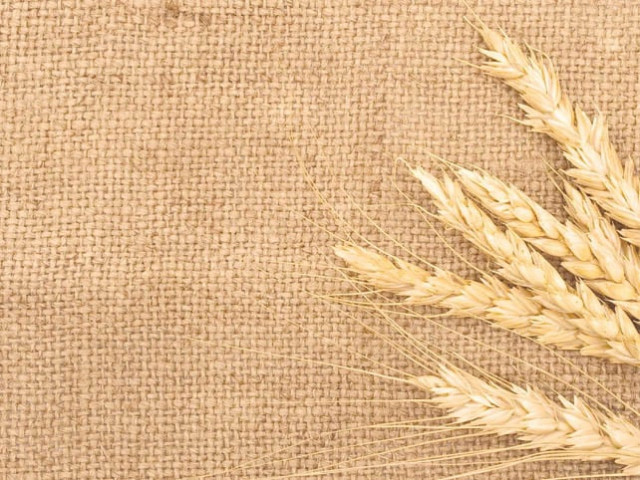Government fails to develop consensus on reducing wheat reserves
No decision reached on procurement programme either.

The government on Tuesday failed to take a decision on reducing strategic wheat reserves by two million tons, after the federal food minister opposed his ministry’s proposal – a unique development that highlights a tug of war between feudal and ‘reformist’ representatives.
In a meeting of the Economic Coordination Committee (ECC) of the cabinet, Food and Agriculture Minister Mir Israr Ullah Zehri stunned his cabinet colleagues when he said the food ministry’s proposal of reducing the strategic wheat reserves from three million tons to one million tons did not carry his stamp.
The committee could not even agree on the definition of strategic reserves despite debating the issue at length. ECC also remained unable to take a decision on another summary of the food ministry, which sought the committee’s nod for procurement of 6.57 million tons of wheat during the next season.
ECC Chairman Dr Abdul Hafeez Shaikh rejected the summary on the ground that the federal food ministry would be dissolved in June and the decision on procurement should be left on the provinces.
ECC formed a committee comprising representatives of the State Bank of Pakistan (SBP), the Planning Commission and the food and finance ministries to decide on strategic reserves of wheat and its procurement and present a report in the next ECC meeting.
The finance ministry, the central bank and the Planning Commission were opposed to the idea of procuring wheat by the public sector due to its financial implications, as the State Bank’s major concern was the amount to be stuck in wheat procurement operations. Currently, the provinces owe over Rs250 billion to the central bank on this account – a figure that has come down from the height of Rs426 billion.
Finance ministry officials said that the wheat procurement operation by the provinces largely benefit big landholders who sell their commodity at the official rate of Rs950 per 40 kilogramme. Small landholders normally sell their commodity much below the procurement rate.
The food ministry briefed ECC that a bumper crop of 25 million tons was expected this year. Its estimates show that 21.7 million tons would be consumed domestically, 1.86 million tons will be reserved for seed purposes and 0.5 million tons will be exported to Afghanistan, leaving a balance of around one million tons. At present, wheat stocks stand at over five million tons and ECC has already allowed provinces to export the surplus commodity through the private sector.
PIA sovereign guarantees
The government agreed to extend sovereign guarantees to the Pakistan International Airlines for its debt of Rs4.5 billion, which it had obtained two years ago. The summary for the issuance of government guarantee for PIA loans was moved by the defence ministry, in which it was proposed that continuing guarantees in respect of all the loans may be issued by the Ministry of Finance and roll over of them may be approved on a yearly basis or for the term of the loan. The finance minister had called for the airline to submit a viable business plan.
Taxpayers to pick Heavy Electrical Complex losses
ECC also approved conversion of Heavy Electrical Complex’s (HEC) loans into equity, to make it viable for privatisation. However, there was dispute over the exact amount of loans, as the finance ministry put these at Rs1.1 billion while HEC estimated it at Rs965 million.
The government also deferred the issue of increasing the cotton cess duty rate by 150 per cent, after the food ministry proposed increasing the rate from Rs20 per maund to Rs50 per maund. Cess proceeds are being used for research and development in the cotton sector.
The finance ministry briefed ECC about the latest economic situation, informing wheat and sugar stocks were sufficient for domestic consumption.
Published in The Express Tribune, March 9th, 2011.



















COMMENTS
Comments are moderated and generally will be posted if they are on-topic and not abusive.
For more information, please see our Comments FAQ